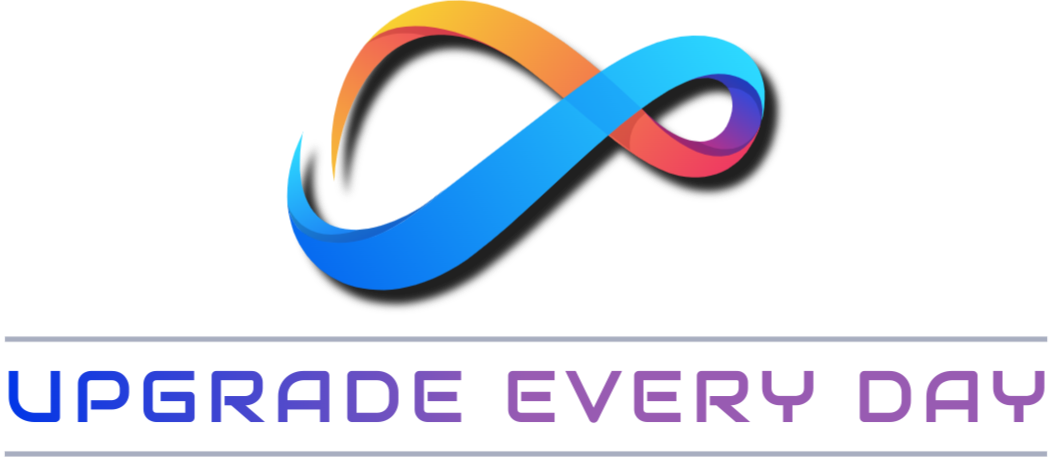Did you know over 90% of online experiences begin with a search engine? Search engines like Google and Bing are key for users seeking info, products, or services. So, understanding SEO basics is crucial if you want your website seen by potential customers.
This guide will help you grasp search engine optimisation (SEO) basics. We’ll explore on-page and off-page SEO, keyword research, meta tags, and backlinks. These elements will boost your site’s ranking and increase organic traffic.
Key Takeaways:
- SEO is vital for enhancing website visibility and drawing organic traffic.
- Grasping SEO helps your site reach the first page of search results, raising visibility and attracting potential customers.
- Tools like Google Analytics, Google Search Console, and Bing Webmaster Tools offer insights into your website’s performance.
- Keyword research is key for optimizing your site’s content for search engines and user intent.
- Creating compelling and relevant content boosts user engagement and search engine rankings.
Understanding SEO Basics and Its Importance for Website Visibility
SEO stands for search engine optimisation. It’s a way to make your website more visible on search engine results. By using effective SEO strategies, your website can show up on the first page of results. This drives more organic traffic to your site.
SEO means understanding how search engines operate. And using that understanding to make your website better. When people search for keywords related to your business, search engines pick the most relevant websites to show them.
The main goal of SEO is to make your website easier to find. When it ranks higher in search results, more people can see it. People looking for what your business offers will come across your site. This leads to more organic traffic, which is visitors from search results, not ads.
Getting more organic traffic is good. It means people are truly interested in what your business does. With more people coming to your site this way, you might get more customers.
To make your website more visible, you need to use several strategies. On-page SEO involves making your website itself better. This includes good content, meta tags, URLs, and how your site is structured. These help search engines understand why your site is valuable.
Off-page SEO is about getting other respected sites to link to yours. These links, or backlinks, make your website seem more credible and authoritative. Search engines look at these when deciding where your site should rank.
Knowing how to do SEO well is key to making your site more visible. It brings more people to your site naturally. In this guide, we’ll go deeper into SEO strategies. You’ll learn how to use them to get more organic traffic.
Essential Tools for SEO Success
To succeed in SEO, you need the best tools. By setting up Google Analytics, you can monitor your site’s traffic, sales, and how users act. Google Search Console gives insights for understanding your site better by search engines.
Also, Bing Webmaster Tools supports site optimisation for Bing. These tools are key for data-driven insights and smart SEO choices.
Using Google Analytics helps you understand where your site’s traffic comes from. It shows how users interact and their conversion rates. Knowing this lets you improve your site and user experience.
Google Search Console is vital for seeing how search engines view your site. It reports on traffic-driving keywords, indexed pages, and any visibility issues. This tool aids in content and structure optimisation for better search rankings.
Bing Webmaster Tools boosts your site on Bing. It shows how Bing views your site, suggesting improvements. This increases visibility to Bing users.
“SEO tool choices are vital for site optimisation and organic traffic. Google Analytics, Google Search Console, and Bing Webmaster Tools offer insights and solutions to enhance your SEO.”
-Paul Nightingale, SEO Expert
These SEO tools allow for an effective analysis of your site’s performance. They show where you can do better and how to enhance your SEO for the biggest impact. The data they provide helps in making smart decisions to reach SEO success.
SEO Tools Comparison
| SEO Tools | Key Features | Benefits |
|---|---|---|
| Google Analytics | Website traffic analysis, conversion tracking, user behaviour insights | Comprehensive data for optimising marketing campaigns, improving user experience, and measuring website performance |
| Google Search Console | Website indexing status, search analytics, website performance metrics | Insights to optimise website visibility, identify crawling issues, and improve search engine rankings |
| Bing Webmaster Tools | Website indexing, keyword research, search performance analysis | Enhance website visibility on Bing, gain insights into user search behaviour, and optimise your site for Microsoft’s search engine |
The table above shows the unique traits and benefits of each SEO tool. By using these tools well, you can stand out online and attract more targeted organic traffic to your site.

Keyword Research: Unlocking the Power of Search Terms
Keyword research is key for SEO, helping your site show up in search results. It means finding what your target audience looks for online. This part talks about why keyword research matters. It shows how to do it well to boost your on-page SEO.
Knowing your audience’s search terms helps you make content they like. Using the right keywords helps your site rank better.
The Importance of Keyword Research
Good keyword research offers insights into what your audience prefers. It helps you to:
- Find relevant and powerful search terms.
- Make your website more visible in search results.
- Bring in the right visitors to your site.
- Understand what your users are looking for.
To do great keyword research, you must:
- Start with broad keywords linked to what you do.
- Expand your list with keyword tools.
- Check how popular and competitive keywords are.
- Make sure your content meets your audience’s needs.
This means knowing your audience’s search habits. Then, make your site’s content, meta tags, and headings better. This makes your site more relevant and visible.
Remember, keyword research needs constant work. Stay updated with new trends and keywords to stay on top!
Optimising On-Page SEO with Keyword Research
On-page SEO is about making your site fit what your audience searches for. Use keywords in your content, headings, and meta tags in a natural way. This boosts your site’s ranking and visibility.
Here are some keyword tips:
- Pick relevant keywords that exactly describe your content.
- Place keywords wisely in content, headings, URLs, and meta tags.
- Don’t cram in too many keywords. Keep it readable.
- Use descriptive alt tags for images, including keywords.
By doing thorough keyword research and applying on-page SEO strategies, you help your site reach its audience. This brings in more organic traffic.
Creating Engaging and Relevant Content
The secret to SEO success is crafting engaging, relevant content. Delivering valuable info that meets your audience’s needs boosts engagement and visit times. This boosts your search rankings and brings more traffic.
Want to create content that hits the mark with your audience and boosts SEO? Here are some strategies to get you there:
1. Understand Your Audience
Firstly, get to know your audience. Research their demographics, interests, and challenges. This knowledge lets you create content that speaks directly to them, making it more engaging.
2. Conduct Keyword Research
Keyword research is key. It unveils what your audience searches for online. By weaving these keywords into your content, you boost its visibility and attract more visitors.
3. Write Compelling Headlines and Introductions
Your content’s headline and intro are crucial. They must be captivating, showing the value of your content. This encourages more clicks and longer website visits.
4. Make Your Content Scannable
People often scan content to find what they need. Use subheadings, bullet points, and short paragraphs to help them. This approach makes your content easier to digest and encourages longer visits.
5. Incorporate Multimedia
Multimedia like images, videos, and infographics make content more engaging. They grab attention and clarify complex topics. So, adding visual elements can greatly enhance your content.
6. Encourage User Interaction
Boost engagement by inviting your audience to comment, share, and ask questions. This increases engagement and gives you insight for content improvement.
To engage and retain your audience while boosting SEO, apply these strategies. Remember, creating great content is a continual effort. Always refine and optimise your work for the best results.

Maximising SEO with On-Page and Off-Page Optimisation
Website optimisation is split into two main types: on-page SEO and off-page SEO. Understanding these strategies helps boost your site’s visibility and search engine rank. Plus, you’ll draw in more organic visitors. Let’s take a closer look at how they work.
On-Page SEO: Enhancing Your Website's Visibility
On-page SEO makes your site appealing to visitors and search engines. You can do this by improving your content, meta tags, URLs, and site layout. This will make your site more visible and likely to rank higher in searches.
Keyword research is key for on-page SEO. Create quality content with these keywords to rank better. This helps your site appear higher in search engine results pages (SERPs).
You should also fine-tune your meta tags, like the title tag and meta description. This makes your site more visible and encourages clicks. Plus, well-structured URLs and clear navigation help search engines understand your site better.

Off-Page SEO: Building Backlinks and Demonstrating Authority
Off-page SEO focuses on building your site’s credibility from the outside. It’s about getting backlinks from other reputable sites. These links show that your content is valuable and trustworthy, boosting your rankings.
Backlinks work like a vote of confidence for your site. They signal to search engines that your site is authoritative. This can lead to higher rankings in search results.
You can get backlinks by creating engaging content, guest blogging, and running influencer marketing campaigns. Social media also plays a huge part in off-page SEO. Active promotion on these platforms can attract more links to your content.
Take Your SEO to the Next Level
Using both on-page and off-page SEO strategies, you can enhance your site’s SEO. Remember to focus on quality content, use the right keywords, optimise your meta tags and URLs, and secure high-quality backlinks. This strategic SEO approach will help your site rank better, draw more visitors, and grow online.
With these tactics, your website can achieve higher search engine rankings. This attracts more organic traffic and helps expand your digital footprint.
Summing Up SEO Basics
Having a strong SEO strategy is key to getting more visitors and leads. You can make your website more visible by using on-page and off-page SEO, researching keywords, and making content that draws people in. It’s important to keep updating and improving your SEO approach. Doing this can make your website reach its highest potential and grow over time.
SEO boosts your website’s place in search results, bringing in more visitors. By making changes like improving meta tags and URLs, search engines can better understand what your site offers. Building backlinks helps show your site is trustworthy. Researching keywords lets you find what your audience is looking for. Then, you can create content that meets their needs. This makes users happy and takes your site higher in search rankings.
SEO success needs ongoing work and changes. Keep checking and improving your SEO strategies to keep your site up to date. Putting SEO at the forefront of your marketing is essential. It brings in organic traffic and valuable leads. With the right SEO moves, your website can unlock its full power. This leads to lasting growth for your business.
FAQ
What is SEO?
SEO stands for search engine optimisation. It’s how you make your site more visible on search engines. SEO uses strategies like optimising pages, researching keywords, improving meta tags, and building backlinks. These steps help rank your site higher and attract viewers.
Why is SEO important for website ranking?
SEO is key for getting organic traffic to your site. It works by making your site match search engine rules. If done right, your site shows up on the first search results page. This boosts your site’s ranking and brings in more viewers.
What tools are essential for SEO success?
For SEO success, using analytics software like Google Analytics is a must. It shows your site’s traffic and user behaviour. Also, Google Search Console and Bing Webmaster Tools offer insights. They help you understand how search engines view your site, letting you optimise better.
Why is keyword research important for SEO?
Finding the right keywords is necessary for good SEO. It lets you know what your audience is searching for. By using these keywords in your content, you improve your site’s search relevance. This boosts your website’s on-page SEO.
How does creating engaging content impact SEO?
Good content is crucial for SEO. It must address the needs of your audience and be interesting. This way, visitors stay longer, which is good for your search engine rank. Quality content is a big part of improving your SEO.
What is the difference between on-page and off-page SEO?
On-page SEO makes your website content and structure more search-friendly. Off-page SEO is about getting links from other sites to show your site’s worth. You need both to make your site perform best in SEO.
How can SEO help my website’s success?
SEO boosts your site in several ways. Through on-page and off-page optimisation and finding the right keywords, you can raise your site’s visibility. Creating engaging content also plays a part. With ongoing effort, SEO can lead to more traffic and growth for your site.





